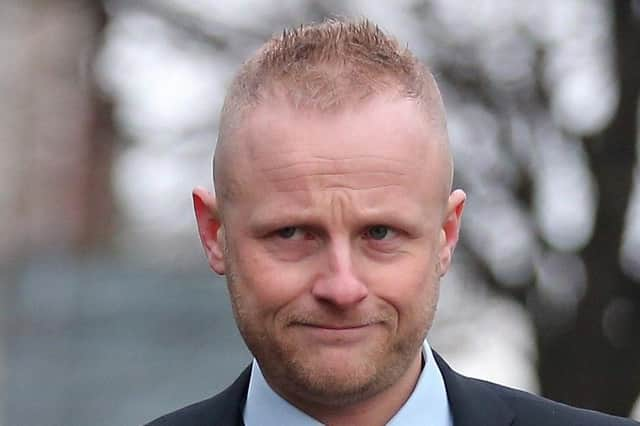Bryson ‘should not face trial for telling the truth’


His barrister claimed no crime was involved in giving evidence on an issue of “enormous public importance”.
Mr Bryson and former Sinn Fein MLA Daithi McKay are challenging decisions to return them both for trial on a charge of conspiracy to commit misconduct in public office.
Advertisement
Hide AdAdvertisement
Hide AdThey were unfairly denied the opportunity to contest revised allegations against them, it was contended.
But judges were also told their legal action is a dangerous attempt to thwart and end the criminal process.
Counsel for the prosecution, Tony McGleenan QC, insisted a trial is necessary to examine any alleged attempts to subvert the Stormont inquiry.
He said: “If individuals involved in those committees are engaging in occult exchanges with witnesses in order to fashion evidence, or have it presented in a particular way, that fundamentally erodes public trust and confidence in the institutions.”
Advertisement
Hide AdAdvertisement
Hide AdThe case relates to a probe into the £1.2bn sale of the National Asset Management Agency (Nama)’s Northern Ireland property portfolio to US investment giant Cerberus.
In September 2015 Mr Bryson gave explosive evidence to the finance committee examining the deal.
Using parliamentary privilege, he made an unsubstantiated allegation that Peter Robinson, the then DUP first minister, was set to profit.
Mr Robinson strenuously denied any wrongdoing, insisting that he neither expected nor received any money from the sale.
Advertisement
Hide AdAdvertisement
Hide AdAt the time Mr McKay was chair of the finance committee and seen as a rising star within Sinn Fein’s ranks.
But a year later he stood down as an MLA for North Antrim and quit Sinn Fein.
Following a police investigation Mr Bryson, Mr McKay, and Sinn Fein member Thomas O’Hara were all charged with conspiracy to commit misconduct in public office.
Judicial review proceedings were launched after a district judge returned them for trial at the Crown Court.
Advertisement
Hide AdAdvertisement
Hide AdJohn Larkin QC, representing Mr Bryson, questioned whether his client’s actions amounted to any alleged offence.
“There simply is no public harm in telling the truth on a matter of public importance,” he told the court.
“There can be no relevant criminality.”
Part of the challenge relates to the ability of defence lawyers to deal with an amended charge.
Martin O’Rourke QC, for Mr McKay, submitted: “There was a procedural unfairness which effectively denied the applicant an opportunity to contest the committal proceedings.”
Advertisement
Hide AdAdvertisement
Hide AdDuring the hearing the three-judge panel repeatedly stressed the protections still available to defendants returned for trial.
And Mr McGleenan also stressed applications can be made at the Crown Court to halt the case on either a no bill or abuse of process.
Turning to the alleged circumstances, he contended that Twitter exchanges led to Mr Bryson’s evidence being given in open session “exactly as scripted”, with committee members unable to stop the public revelations.
It involved advice on how to make a final disclosure that a ‘Person A’ was Mr Robinson, the court heard.
The hearing continues.